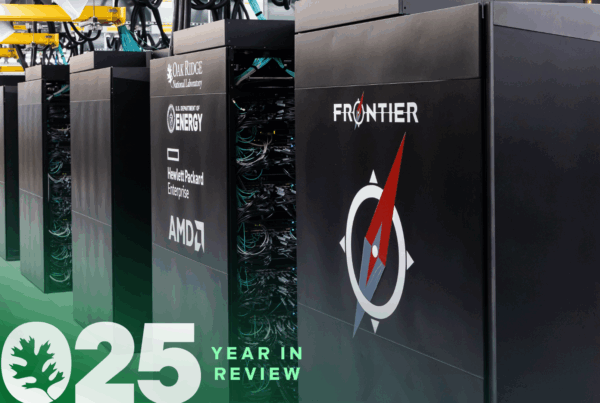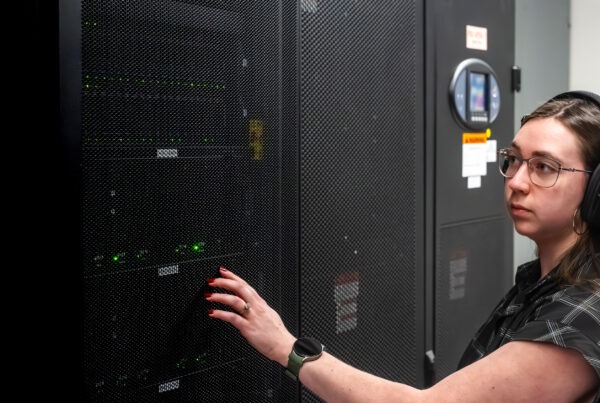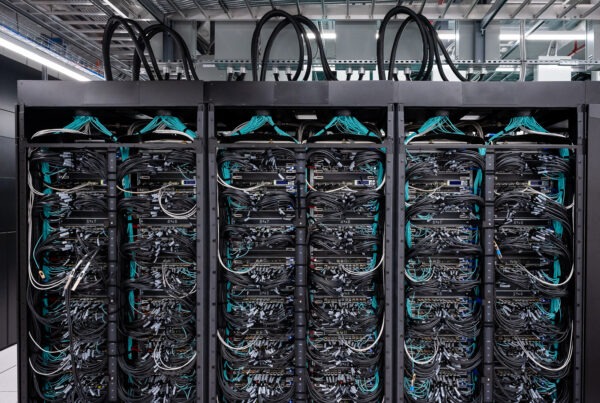The computational scientists who run codes on the massively powerful supercomputers at the Oak Ridge Leadership Computing Facility (OLCF) are working on solving some of the world’s most challenging problems. The OLCF supports research in areas ranging from biology to engineering to energy—and it is now supporting work related to the COVID-19 pandemic. Crucial to running the computational codes that enable this research are compilers, tools that convert a user’s programming instructions into code that the computers can actually execute.

Mentor will contribute to the development of the GCC compiler to improve GCC’s support for the programming of GPUs. Image Credit: Mentor, A Siemens Business
One of the most widely used compilers at the OLCF, the GNU Compiler Collection (GCC), is favored not only for its high quality but also for its availability across platforms. Because it’s open-source, it often comes as a default on computers running the Linux operating system and is easily installed on Windows and Mac systems. Now, the OLCF has contracted with Mentor, a Siemens business, who will contribute to the compiler’s development to better meet the needs of OLCF users.
“GCC’s approach to quality control depends on having a few, highly trusted development groups contributing to the suite,” said David Bernholdt, group leader for the Computer Science Research Group at the OLCF. “Mentor has a long history of being involved in GCC development, and we are happy to partner with them for this effort.”
The enhancements OLCF staff are targeting are focused on improving GCC’s support for the programming of GPU accelerators. This includes rounding out the implementation of the OpenACC programming standard in GCC and implementation of the latest version of the OpenMP programming model so it can better leverage the NVIDIA V100 GPU accelerators in the OLCF’s IBM AC922 Summit supercomputer. Mentor will also update key elements of the GCC Fortran implementation to the Fortran 2018 standard. The OLCF strives to provide a consistent user environment across generations of systems, so enhancements will also feed into the OLCF’s future exascale system, Frontier, which will feature AMD Radeon Instinct GPUs.
The changes will benefit the entire high-performance computing (HPC) community, Bernholdt said. Because GCC is an open-source compiler, changes made by Mentor will be openly available in the latest version of GCC.
“Mentor’s development work will allow us to make this well-known tool better and more usable,” Bernholdt said. “This is both in our own interest and in the interest of the whole HPC community.”
Additionally, the changes will offer greater flexibility for OLCF users.
“We really push these systems to the limit and people work at the edge of functionality,” Bernholdt said. “If a user encounters a compiler bug or something else that stalls their progress, switching to another compiler can help them to diagnose and work around problems—and different applications often get better performance with one compiler or another.”
“We are very pleased to have been selected by and to be working with ORNL to provide GCC enhancements to improve HPC accelerator offload for ORNL’s supercomputers,” said Pete Decher, Director of Sourcery Tools compiler services group at Mentor, a Siemens Business. “With more than 20 years of compiler development experience, Mentor can provide enhanced GPU support and improved HPC performance for GCC. This can help make ORNL’s systems more easily usable by scientists and engineers needing to execute HPC workloads to solve challenges in energy, artificial intelligence, human health, and other research areas.”
The OLCF is a US Department of Energy (DOE) Office of Science User Facility at DOE’s Oak Ridge National Laboratory (ORNL).
UT-Battelle LLC manages Oak Ridge National Laboratory for DOE’s Office of Science, the single largest supporter of basic research in the physical sciences in the United States. DOE’s Office of Science is working to address some of the most pressing challenges of our time. For more information, visit https://energy.gov/science.






